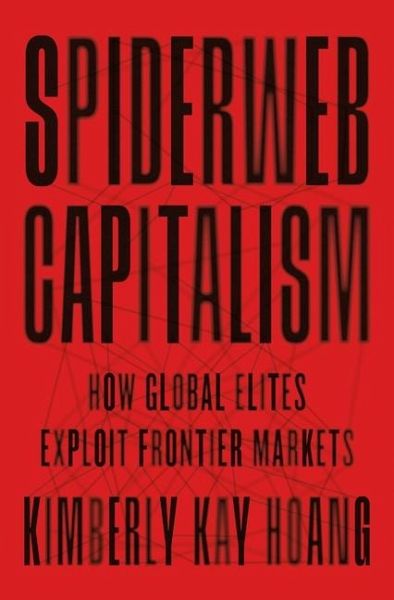
Spiderweb Capitalism
How Global Elites Exploit Frontier Markets
Versandkostenfrei!
Versandfertig in 2-4 Wochen
37,99 €
inkl. MwSt.
Weitere Ausgaben:

PAYBACK Punkte
19 °P sammeln!
"In 2015, an anonymous source leaked the so-called Panama Papers, 11.5 million documents detailing financial and attorney-client information and connecting over 140 ultra-wealthy individuals across 50 countries to offshore companies in 21 tax havens. Journalists and scholars have attempted to chart these complex networks in the wake of various scandals but have learned very little. The focus on high-profile cases of egregious theft leaves a shroud of uncertainty over the mechanics behind the invisible, mundane networks of people who facilitate illicit activities by conducting transactions acro...
"In 2015, an anonymous source leaked the so-called Panama Papers, 11.5 million documents detailing financial and attorney-client information and connecting over 140 ultra-wealthy individuals across 50 countries to offshore companies in 21 tax havens. Journalists and scholars have attempted to chart these complex networks in the wake of various scandals but have learned very little. The focus on high-profile cases of egregious theft leaves a shroud of uncertainty over the mechanics behind the invisible, mundane networks of people who facilitate illicit activities by conducting transactions across multiple sovereigns. Playing in the Gray focuses on the constant and quiet movement of money through offshore shell corporations, the primary motor of global capital. Hoang takes a deep-dive into the emerging markets of Vietnam and Myanmar. Over the course of two years, she travelled more than 350,000 miles to conduct ethnographic observations and interviews with 300 individuals who facilitate the movement of capital around the world. Her research subjects include private wealth managers, fund managers, chairpeople, local entrepreneurs, high-level executives, lawyers, bankers, auditors, and company secretaries, each playing an essential role in circulating concealed capital through global markets. She draws on this data to develop a new framework for understanding what she calls spiderweb capitalism, which she defines as a system that features a complex web of subsidiaries that are interconnected across multiple sovereigns and are virtually impossible to quantify. She argues that legal and illegal activity are in fact deeply connected in this web and provides an account of how financial elites make markets in the new globalized economy"--



